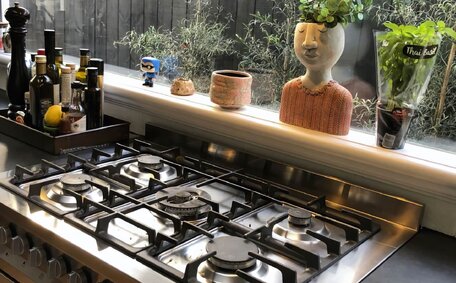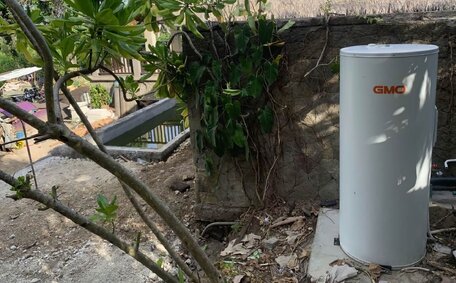
Financial Benefits of Natural Gas
Natural gas offers many financial perks over other energy sources. It burns cleaner and costs less than alternatives, helping lower monthly bills.
Read MorePipe relining is a robust solution to calcium buildup, tailored to various pipe sizes. This trenchless method involves coating the insides of damaged pipes with an epoxy resin, preventing buildup adhesion and crafting a smooth, protective barrier. The resin forms a new, jointless pipe within the broken pipes, halting further corrosion and buildup, restoring flow capacity.
Our experts explained what makes pipe relining beneficial over traditional pipe replacement:
Regular maintenance is crucial for managing calcium buildup and preventing the complications of a blocked drain due to untreated deposits. However, for severely clogged or damaged drains, pipe relining is the superior solution. Our professional plumbers employ advanced pipe lining technologies meticulously to create new, seamless pipes without the disruption and cost of replacing pipes.
Here are the key steps involved in relining pipes to remove calcium buildup and restore proper water flow:
Relining a sewer line can restore flow capacity in storm water drains that are blocked and calcium-affected.
Our team ensures effective results by providing a durable epoxy barrier that prevents future buildup and damage. Our expert plumbers skilfully apply advanced techniques to reline pipes clogged with calcium deposits. This trenchless method is fast, effective and inexpensive compared to full pipe replacement.
Pipe relining presents multiple benefits compared to complete pipe replacement in addressing calcium buildup:
When calcium deposits have built up over time, pipe relining is the optimal solution, especially since calcium buildup pipes can seriously compromise flow capacity. Our expert plumbers use industry-leading relining techniques to provide long-term prevention of calcium deposit issues.
Various preventative measures can effectively prevent calcium buildup in pipes:
With our support in installing protective devices, you can safeguard your plumbing system from calcium buildup and blockages. Combined with regular maintenance like drain flushing, you can get your pipes clear and avoid major blockages. Reach out if our team can aid in equipment installation, assist with your blocked drains, or address any questions regarding the prevention of pipe calcium deposits.
For minor blocked drain issues, there are some basic methods you can try at home before calling in a professional:
Pouring boiling water down the drain can dissolve minor calcium deposits and resolve blockages for unimpeded water flow. Allow a full kettle to boil, then slowly pour it down the affected drain.
Continue this process until the drain becomes clear. This is only recommended for small-scale blockages.
A mixture of baking soda and vinegar can dismantle stubborn calcium deposits, potentially safeguarding your water supply. You can also combine equal parts vinegar and baking soda for increased effectiveness. This mixture will bubble and fizz, indicating the breakdown of scale buildup.
Pour 1 cup of white vinegar down the drain, leave it for 30 minutes, then follow up with a hot water flush.
Lemon juice, lime juice, and citric acid crystals, like vinegar, utilize natural acidity to eliminate calcium deposits in pipes. Let the citrus juice sit for at least 15 minutes before flushing with hot water.
To help prevent future calcium buildup:
While DIY methods offer temporary relief for minor blockages, professional hydrojetting is often required for significant calcium buildup. Our licensed plumbers and electrical plumbing experts safely eradicate heavy calcium deposits from drain lines, along with repairing and safeguarding your pipes.
Attempting to fix your own extensive deposits can worsen pipe damage. For major sewer line clogs, possibly due to hardened mineral deposits or intrusive tree roots, don’t hesitate to contact us.
Natural gas offers many financial perks over other energy sources. It burns cleaner and costs less than alternatives, helping lower monthly bills.
Read MoreChoosing the correct hot water system size involves considering factors like number of household members, number of bathrooms, peak usage times and daily hot water needs per person. Our guide helps determine the right system capacity.
Read MoreHaving trouble with your gas water heater not heating properly? The pilot light may have gone out. Follow our clear guide on relighting your gas water heater’s pilot light in 6 easy steps. Or call the friendly experts at Balmain Plumbing if you need assistance relighting your pilot.
Read MoreBalmain, 2041 NSW
We will call back as soon as possible.




